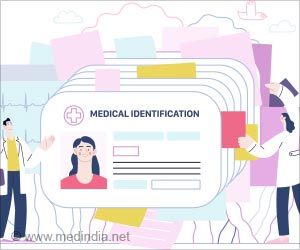Previous research has shown that stigma contributes to negative health outcomes and can pose a barrier to mental illness or substance use disorders treatment.
‘Use suitable words to describe mental illness and substance use disorder to make a significant and immediate difference for the people experiencing them.’
The authors point to evidence that stigma-related bias among clinicians can contribute to a treatment-hesitant mindset and defective clinical care.
Incorporating self-stigma in a person with mental illness or substance use disorder can lead to lower self-esteem that may exacerbate symptoms and create barriers to successful treatment.
Efforts to reduce stigma can reduce the psychological burden it places on individuals and can be an important component of removing barriers to care.
The authors also highlight numerous studies that have proved using scientifically accurate language and terms to rationalize the experience of patients with mental illness and substance use disorders is a key component to reducing stigma.
A shift in language is important for mobilizing resources toward mental health and addiction services and eroding the bias that kept people away from treatment.
Though stigma is difficult to eliminate, Changing the language that used to describe these conditions can make a significant and immediate difference for the people experiencing them.
Source: Medindia



